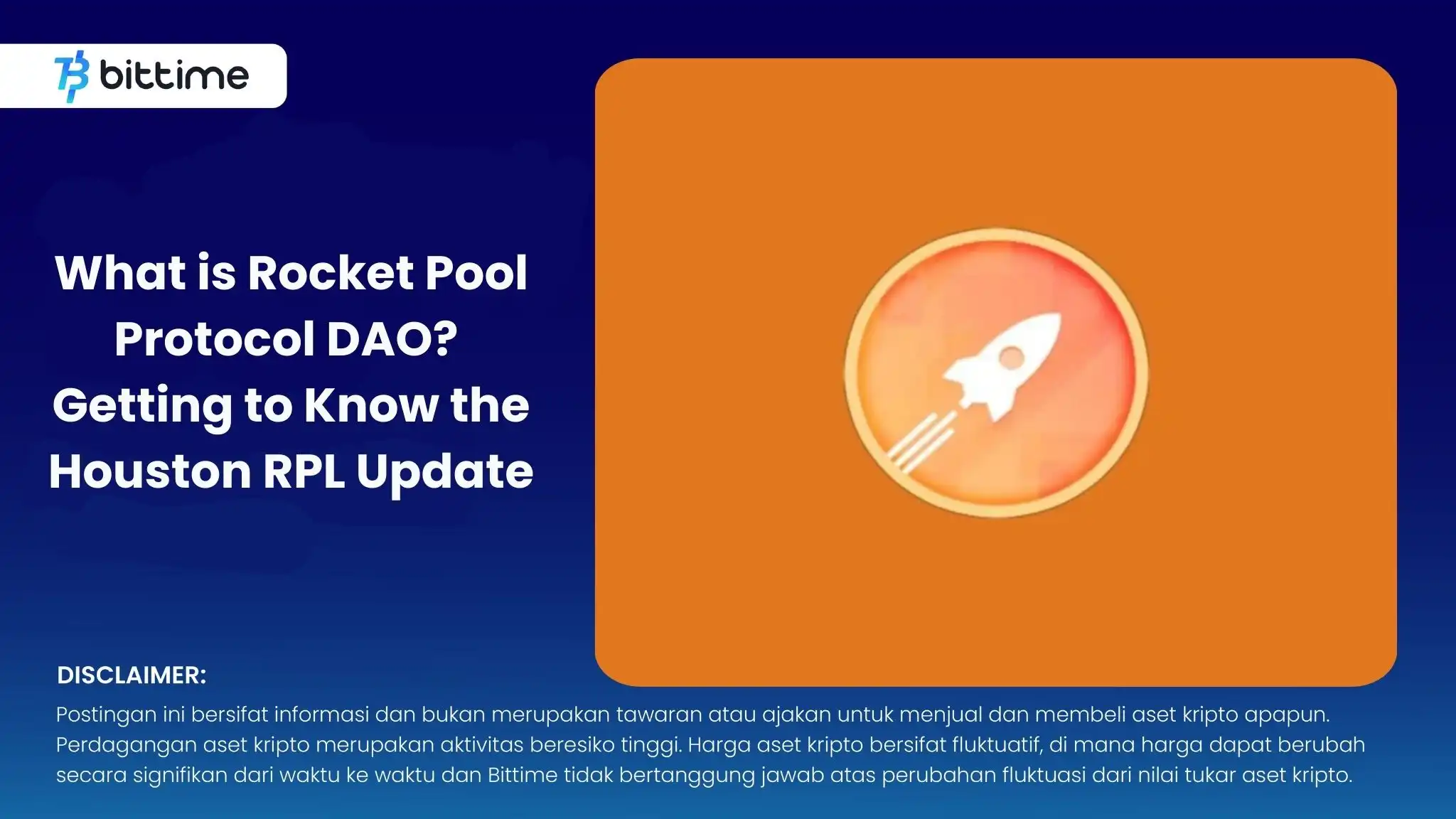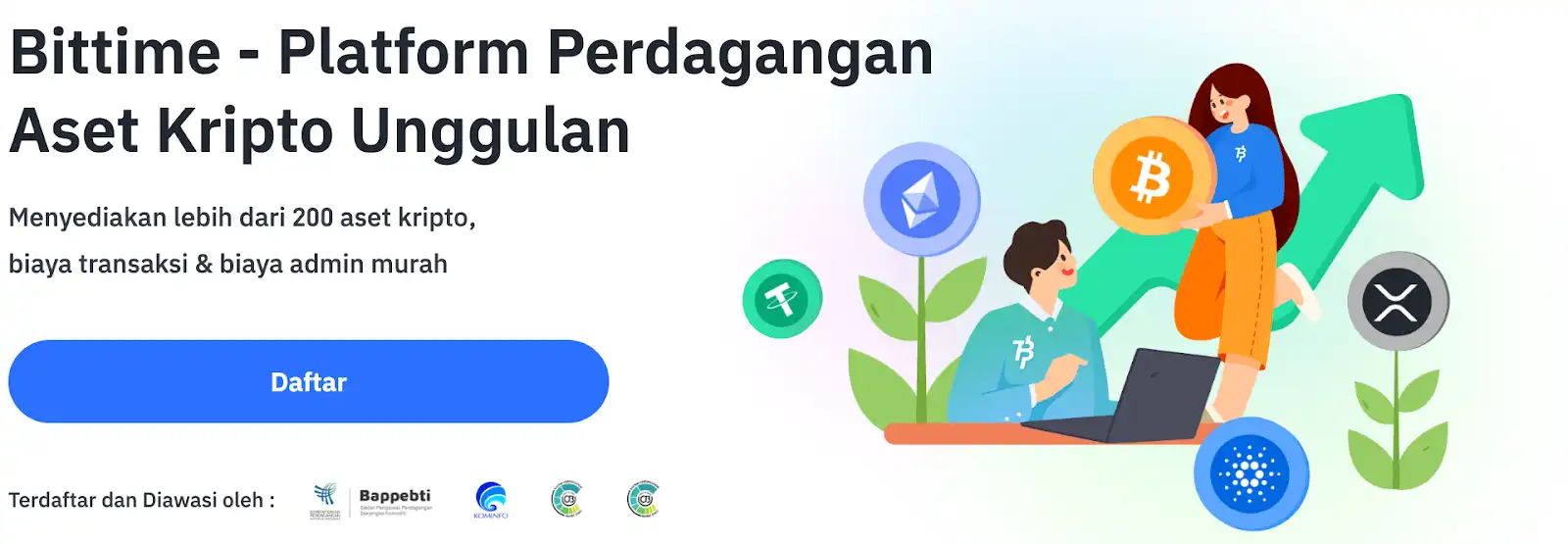What is Rocket Pool Protocol DAO? Getting to Know the Houston RPL Update
2024-07-10
Bittime - The Houston upgrade for Rocket Pool (RPL) will introduce a revolutionary on-chain DAO, known as Protocol DAO (pDAO). This upgrade eliminates the need for third-party tools such as snapshot voting, ensuring a fully on-chain governance model.
Additionally, the upgrade brings features such as the ability to stake ETH on behalf of nodes and a new RPL withdrawal address function. The upgrade will support new integrations and platforms built on top of the protocol.
Protocol DAO: The Future of Rocket Pool?
Rocket Pool Protocol DAO (pDAO) is the protocol’s governance center, managed by RPL holders who are also node operators. Unlike traditional DAO governance that relies on token-weighted voting, Rocket Pool emphasizes active participation.
All members, from large venture capital funds to individual node operators, must be actively involved in the protocol to influence its direction. Currently, the pDAO oversees various on-chain arrangements and can propose and vote on Rocket Pool Improvement Proposals (RPIPs).
This proposal allows the community to shape the future of the protocol. For detailed information, the current RPIP registry is publicly accessible.
Also Read How To Buy Crypto:
pDAO Functions and Capabilities
pDAO has extensive control over protocol governance, treasury funds, and the newly introduced security council:
- Protocol Parameters: These include settings such as the minimum ETH deposit for rETH (0.01 ETH) and the maximum deposit pool size. A full table of these parameters is available.
- Treasury Fund: Rocket Pool has a 5% inflation rate, part of which is used to fund the pDAO treasury. This treasury supports protocol development, grant management, and third-party projects. The Houston upgrade allows these payments to be made progressively to better track funding goals.
- Peace Chamber: Introduced in the Houston upgrade, this chamber can stop the protocol in an emergency. Elected by the pDAO, members need a quorum to act and can be removed or the board dissolved if necessary.
Proposal and Voting Mechanism
The governance process involves proposals, restrictions, and voting on changes:
- Proposing: Any node with voting rights can propose changes, requiring a bond in the RPL.
- Challenging: Proposals can be challenged if the data is inaccurate, with opponents also posting a bond. Successful challenges result in a bond reward.
- Voting: Proposals enter a two-period voting phase after the challenge period. Node operators can vote to abstain, support, oppose, or veto a proposal. Vetoes indicate spam or malicious intent, immediately defeating the proposal if a quorum is met.
Check Crypto Market Today:
Staking ETH atas Nama Node
RPIP-32 introduces the ability for accounts to stake ETH on behalf of registered Rocket Pool nodes. This feature supports a variety of scenarios, such as increased security for node operators and staking as a service by trusted custodians.
It also allows multiple independent depositors to stake via smart contracts.
RPL Withdrawal Address
Rocket Pool now allows node operators to specify different withdrawal addresses for ETH and RPL. This allows one party to supply ETH and another to manage RPL rewards without moving custody, offering flexibility and security for node operators and their partners.
Time Based Balance and RPL Pricing
To improve predictability, Rocket Pool has moved from block-based intervals to time-based intervals for reporting RPL collateral ratios and balances.
This change ensures a consistent 24-hour window for refills after the final price update, in line with the reward interval calculation method.
Comprehensive Audit
To ensure the security and efficiency of the Houston upgrade, Rocket Pool is working with leading Ethereum audit teams:
- Consensys Diligence (Late November to Mid December 2023)
- Sigma Prime (Late November 2023, and again in March 2024)
- Chainsafe (mid-January to April 2024)
This audit confirms the robustness and reliability of the upgrade, providing confidence in Rocket Pool’s enhanced governance and staking features.
How to Buy Crypto with Bittime
You can buy and sell crypto assets easily and safely through Bittime. Bittime is one of the best crypto applications in Indonesia that has been officially registered with Bappebti.
To be able to buy crypto assets on Bittime, make sure you have registered and completed your identity verification. Also, make sure you have sufficient balance by depositing some funds into your wallet. Just so you know, the minimum asset purchase on Bittime is IDR 10,000. After that, you can make crypto asset purchases in the application.
Monitor the price chart movements of Bitcoin (BTC) , Ethereum (ETH) , Solana (SOL) and other cryptos to find out today's crypto market trends in real-time on Bittime.
Disclaimer: The views expressed belong exclusively to the author and do not reflect the views of this platform. This platform and its affiliates disclaim any responsibility for the accuracy or suitability of the information provided. It is for informational purposes only and not intended as financial or investment advice.

